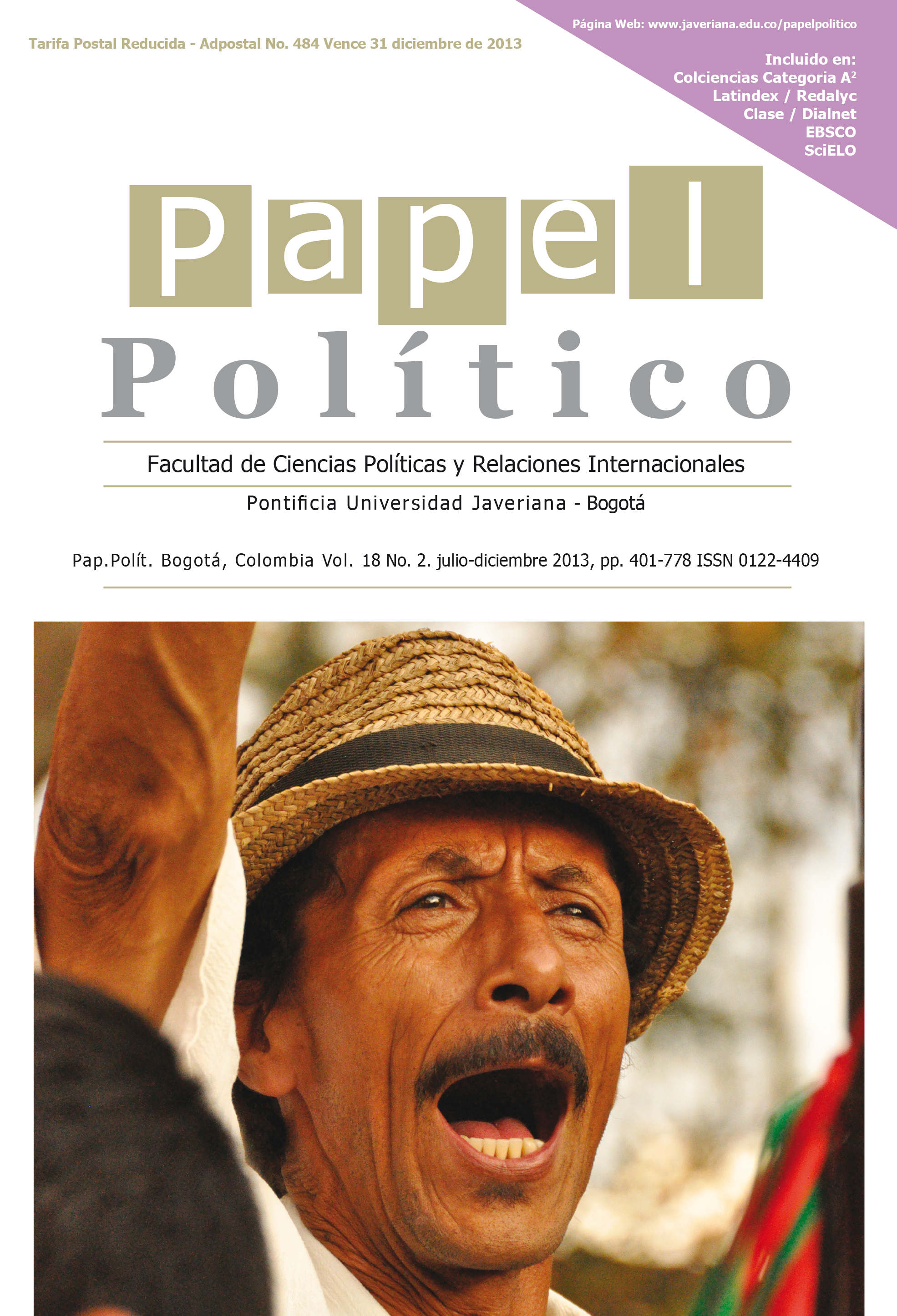Abstract
In this paper we focus on the evolution of the strategies of autonomy, which have characterizedforeign policies implemented in Latin America since the decade of the seventies. Taking the international relations theory debate, that ranges from rationalist positions to reflectivism, as a starting point, we adopt some contributions of the realistic and transnational approaches, the dependency theories that characterize the Latin American debate, and the contributions of the constructivist approach. We consider that this evolution has three distinct stages: a traditional autonomy, from the decade of the seventies, a relationalautonomy —worked further by Tokatlian and Russell (2000)—, and, currently, a process of rethinking the strategies of autonomy due to the transformations in the development models and the political regimes of some countries and the consequent changes in foreign policy interests. These changes are caused by a post-neoliberal agenda that favors regional armonization, based on the constructivist approach, over the relations with the United States, with a meaning that is different from prior periods but that preserves the contents of the sociopolitical agenda on the economic and commercial agreements.This journal is registered under a Creative Commons Attribution 4.0 International Public License. Thus, this work may be reproduced, distributed, and publicly shared in digital format, as long as the names of the authors and Pontificia Universidad Javeriana are acknowledged. Others are allowed to quote, adapt, transform, auto-archive, republish, and create based on this material, for any purpose (even commercial ones), provided the authorship is duly acknowledged, a link to the original work is provided, and it is specified if changes have been made. Pontificia Universidad Javeriana does not hold the rights of published works and the authors are solely responsible for the contents of their works; they keep the moral, intellectual, privacy, and publicity rights.
Approving the intervention of the work (review, copy-editing, translation, layout) and the following outreach, are granted through an use license and not through an assignment of rights. This means the journal and Pontificia Universidad Javeriana cannot be held responsible for any ethical malpractice by the authors. As a consequence of the protection granted by the use license, the journal is not required to publish recantations or modify information already published, unless the errata stems from the editorial management process. Publishing contents in this journal does not generate royalties for contributors.


